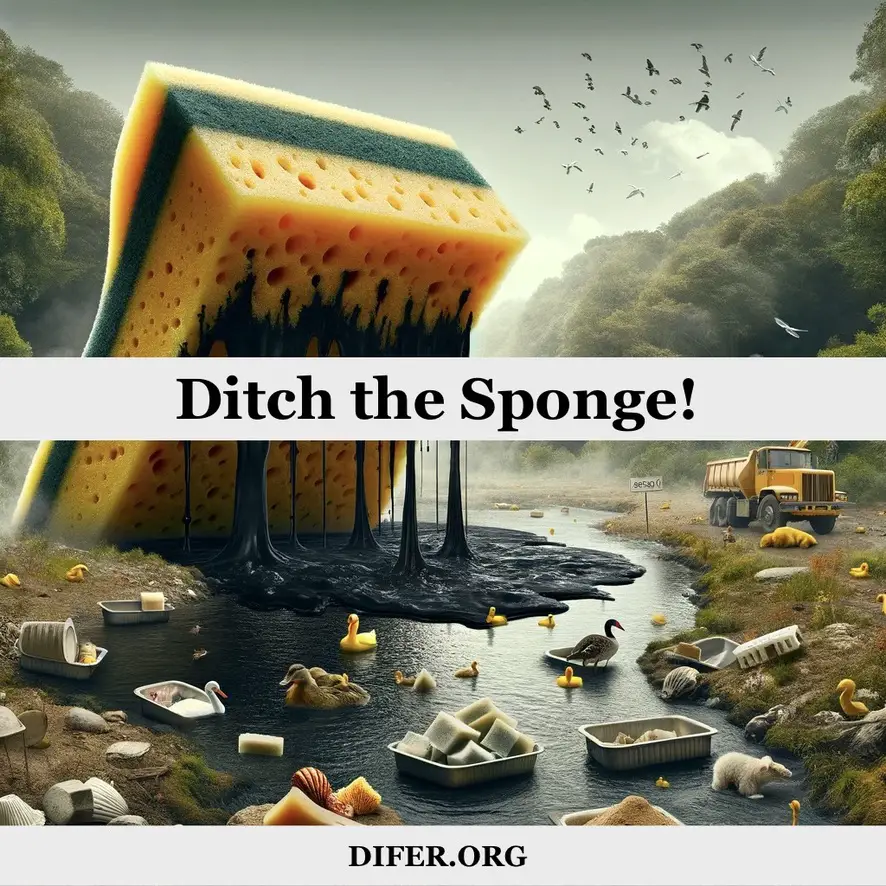Not only are traditional kitchen sponges unsanitary, but they also have several negative environmental impacts:
- Non-Biodegradable Materials: Many kitchen sponges are made from synthetic materials like plastic, which are not biodegradable. When disposed of improperly, these sponges can contribute to plastic pollution in landfills and waterways, where they may persist for hundreds of years.
- Microplastic Pollution: Over time, synthetic sponges can break down into tiny plastic particles known as microplastics. These microplastics can leach into the environment, posing risks to aquatic life and ecosystems. Additionally, when used to clean dishes, sponges can release microplastics directly into wastewater, further contributing to environmental contamination.
- Resource Consumption: The production of synthetic sponges requires the extraction and processing of fossil fuels, as well as other natural resources. This consumption of resources contributes to environmental degradation and carbon emissions.
- Chemical Contamination: Some kitchen sponges may contain chemicals or additives that can leach into the environment over time, potentially contaminating soil and water.
To minimize the environmental impact of kitchen cleaning tools, consider using alternatives to traditional sponges:
- Natural Fiber Sponges: Look for sponges made from natural materials like cellulose, loofah, or plant-based fibers. These sponges are biodegradable and often compostable, reducing their environmental footprint.
- Reusable Dishcloths and Rags: Reusable dishcloths made from materials like cotton, bamboo, or hemp are durable, absorbent, and can be washed and reused many times. Look for options that are certified organic or sustainably sourced.
- Silicone Scrubbers: Silicone scrubbers are non-porous, easy to clean, and durable. They can be used for various cleaning tasks and are resistant to bacterial growth. Silicone is also recyclable, making it a more eco-friendly option than traditional plastic sponges.
- Natural Brushes: Consider using brushes made from natural materials like wood and plant fibers for scrubbing dishes and surfaces. These brushes are often biodegradable and can be composted at the end of their lifespan.
- DIY Options: You can also make your own cleaning tools using materials you already have at home. For example, old cotton T-shirts or towels can be cut into reusable cleaning cloths, reducing waste and saving money.
By choosing eco-friendly alternatives to traditional sponges, you can help reduce plastic pollution, conserve natural resources, and minimize your environmental impact while keeping your kitchen clean.
DIFER.ORG is committed to reducing waste




